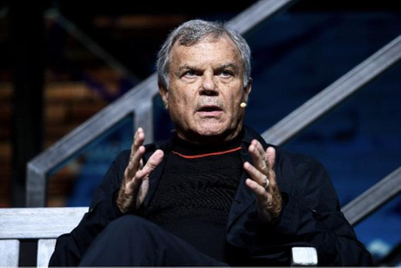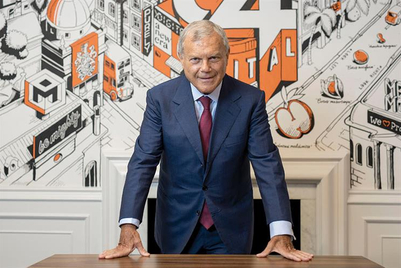
The impact of AI on the industry is “underplayed” and could overhaul media planning and buying, as well as the "massive deployment of resources", Martin Sorrell has said.
Speaking at Campaign’s TV Advertising Summit yesterday (22 February), the S4 Capital founder and executive chairman said adland has a blind spot for the impact that AI is likely to have on the industry.
“Artificial intelligence or artificial general intelligence is going to have a huge impact," he said. "And I think that impact has been underplayed already, if it's possible, not just on the creative side of the industry, but also on the media side of the industry.”
He said AI can be more effectively used to “determine the optimal deployment of resources", and a “danger signal” for holding companies was that AI now enables clients to plan media directly with the platforms, with advice from intermediaries.
“It calls into question the massive deployment of people," Sorrell said. "The key issue will be how the mathematical models work and how effective they are, rather than the deployment of huge armies of people around the world to implement.”
An example of what Sorrell was talking about may be Starcom’s Abacus, unveiled in 2021, which was the industry’s “first media booking bot”.
As a tool, it is able to develop a media plan using data, communicate with media owners, and report back to the Starcom team.
Rather than it raising concerns about the job security of planners, Starcom chief executive Nadine Young said at the time that it “liberated staff” and allowed them to focus on “strategic and creative growth opportunities”.
Sorrell also referred to his recent correspondence with the chief marketers of “three major companies” that vented frustrations around media planning, with insufficient TV frequency capping – the practice of limiting the number of times that a particular ad is shown – “front and centre (as) their biggest concern”.
“They were sick and tired of needlessly repeating TV ads in breaks, which annoyed consumers and annoyed clients in terms of wastage,” Sorrell said.


.jpg&h=334&w=500&q=100&v=20250320&c=1)
.jpg&h=334&w=500&q=100&v=20250320&c=1)
.jpg&h=334&w=500&q=100&v=20250320&c=1)



.png&h=334&w=500&q=100&v=20250320&c=1)

.png&h=334&w=500&q=100&v=20250320&c=1)



.jpg&h=268&w=401&q=100&v=20250320&c=1)
.png&h=268&w=401&q=100&v=20250320&c=1)



